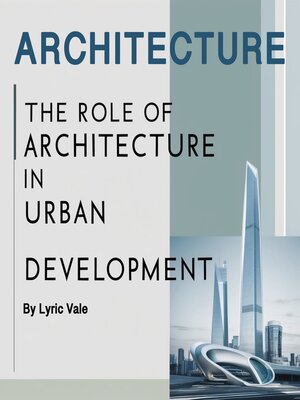
Sign up to save your library
With an OverDrive account, you can save your favorite libraries for at-a-glance information about availability. Find out more about OverDrive accounts.
Find this title in Libby, the library reading app by OverDrive.



Search for a digital library with this title
Title found at these libraries:
| Library Name | Distance |
|---|---|
| Loading... |
Architecture serves as the backbone of urban development, influencing not only the physical layout of cities but also the cultural, economic, and social dimensions of urban life. From towering skyscrapers to public parks, architectural design is integral to shaping how people live, work, and interact in urban spaces. The built environment defines a city's identity and plays a crucial role in determining its functionality and sustainability.
Urban development encompasses the transformation of cities into thriving hubs of activity, and architecture provides the structural framework for this process. It facilitates the efficient use of land and resources while addressing the challenges of population growth, housing shortages, and environmental degradation. Through thoughtful planning and innovative design, architects have the power to create spaces that accommodate the needs of diverse populations, foster community interaction, and encourage economic growth.
Architecture also influences how people experience and perceive urban environments. The design of streetscapes, public squares, and transit systems can enhance connectivity and accessibility, making cities more livable and appealing. Iconic structures, such as bridges or cultural institutions, often become symbols of a city's character and aspirations. For instance, the Eiffel Tower in Paris or the Burj Khalifa in Dubai not only contribute to the urban landscape but also serve as global landmarks that attract tourism and investment.







